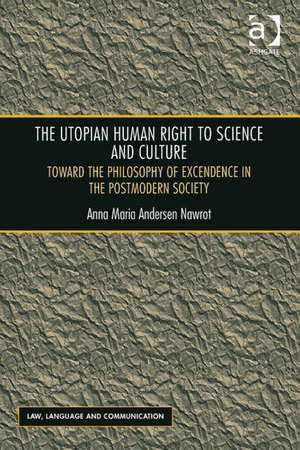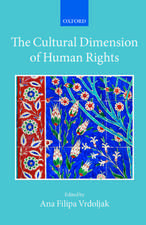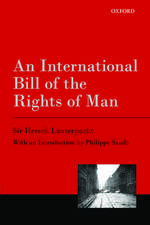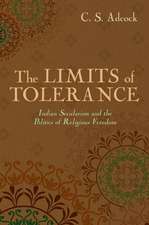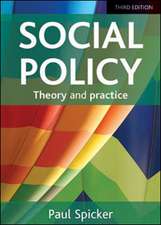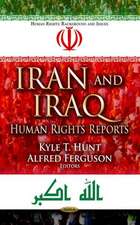The Utopian Human Right to Science and Culture: Toward the Philosophy of Excendence in the Postmodern Society: Law, Language and Communication
Autor Anna Maria Andersen Nawroten Limba Engleză Hardback – 3 apr 2014
| Toate formatele și edițiile | Preț | Express |
|---|---|---|
| Paperback (1) | 258.48 lei 6-8 săpt. | |
| Taylor & Francis – 30 iun 2020 | 258.48 lei 6-8 săpt. | |
| Hardback (1) | 816.81 lei 6-8 săpt. | |
| Taylor & Francis – 3 apr 2014 | 816.81 lei 6-8 săpt. |
Din seria Law, Language and Communication
- 17%
 Preț: 258.11 lei
Preț: 258.11 lei - 23%
 Preț: 322.31 lei
Preț: 322.31 lei - 17%
 Preț: 258.48 lei
Preț: 258.48 lei - 17%
 Preț: 258.48 lei
Preț: 258.48 lei - 17%
 Preț: 258.48 lei
Preț: 258.48 lei - 13%
 Preț: 336.40 lei
Preț: 336.40 lei - 26%
 Preț: 846.49 lei
Preț: 846.49 lei - 17%
 Preț: 237.48 lei
Preț: 237.48 lei - 18%
 Preț: 254.54 lei
Preț: 254.54 lei - 22%
 Preț: 324.06 lei
Preț: 324.06 lei - 17%
 Preț: 258.48 lei
Preț: 258.48 lei - 17%
 Preț: 258.48 lei
Preț: 258.48 lei - 17%
 Preț: 272.66 lei
Preț: 272.66 lei - 13%
 Preț: 336.40 lei
Preț: 336.40 lei - 17%
 Preț: 270.74 lei
Preț: 270.74 lei - 17%
 Preț: 270.92 lei
Preț: 270.92 lei - 18%
 Preț: 236.06 lei
Preț: 236.06 lei - 17%
 Preț: 257.39 lei
Preț: 257.39 lei - 17%
 Preț: 257.39 lei
Preț: 257.39 lei - 35%
 Preț: 205.66 lei
Preț: 205.66 lei - 17%
 Preț: 257.82 lei
Preț: 257.82 lei - 17%
 Preț: 258.58 lei
Preț: 258.58 lei - 17%
 Preț: 129.45 lei
Preț: 129.45 lei - 26%
 Preț: 760.69 lei
Preț: 760.69 lei - 26%
 Preț: 760.45 lei
Preț: 760.45 lei - 17%
 Preț: 271.02 lei
Preț: 271.02 lei - 26%
 Preț: 761.01 lei
Preț: 761.01 lei
Preț: 816.81 lei
Preț vechi: 1103.68 lei
-26% Nou
Puncte Express: 1225
Preț estimativ în valută:
156.30€ • 165.06$ • 130.07£
156.30€ • 165.06$ • 130.07£
Carte tipărită la comandă
Livrare economică 11-25 ianuarie 25
Preluare comenzi: 021 569.72.76
Specificații
ISBN-13: 9781472418326
ISBN-10: 1472418328
Pagini: 232
Dimensiuni: 156 x 234 x 14 mm
Greutate: 0.54 kg
Ediția:New.
Editura: Taylor & Francis
Colecția Routledge
Seria Law, Language and Communication
Locul publicării:Oxford, United Kingdom
ISBN-10: 1472418328
Pagini: 232
Dimensiuni: 156 x 234 x 14 mm
Greutate: 0.54 kg
Ediția:New.
Editura: Taylor & Francis
Colecția Routledge
Seria Law, Language and Communication
Locul publicării:Oxford, United Kingdom
Cuprins
The Utopian Human Right to Science and Culture
Notă biografică
Since December 2012, Anna Maria Andersen Nawrot has been Deputy Head of the Center for Theory and Philosophy of Human Rights, Faculty of Law and Administration, Lodz University, Poland (CENHER Lodz) and a Head of the CENHER Regional Office in Lund, Sweden. In 2007 she was awarded a second prize for the best PhD in law by the Polish Science Academy and Kluwer Poland. Since 2008 she has been Senior Lecturer in Human Rights on the Master Course in Human Rights and Humanitarian Law, Lund University and during 2010-11 she was Director of one of the specializations available on the course. From 2007-2012, she was a senior researcher at the Raoul Wallenberg Institute of Human Rights and Humanitarian Law in Lund with postdoctoral grants received from the Swedish Institute. She was Managing Editor of the Nordic Journal of International Law (NJIL) from 2009-11 and in 2013 she was awarded an individual stipendium on the child rights project from the Justa Gardi Foundation, Sweden.
Recenzii
’This book offers a remarkable combination of comprehensive philosophic analysis and vibrant discussion of emerging legal issues of information society. I definitely recommend it to anyone seriously interested in information rights or intellectual property.’ Radim PolÄák, Masaryk University, Czech Republic ’This book presents an impressive claim for the formation of a new human right, namely the right to science and culture. The author brings a fresh approach to provide welcome new perspectives on traditional copyright law. This valuable contribution will be appreciated by all those interested in copyright law, human rights, philosophy and norm-creation.’ Nina-Louisa Arold Lorenz, Lund University, Sweden
Descriere
This book explores the question of whether the ideal right to science and culture exists. It proposes that the human right to science and culture is of a utopian character and argues for the necessity of the existence of such a right by developing a philosophical project situated in postmodernity, based on the assumption of ’thinking in terms of excendence’. The book offers a new way of thinking about access to knowledge in the postanalogue, postmodern society, and is inspired by twentieth-century critical theorists such as Levinas, Gadamer, Bauman and Habermas.
